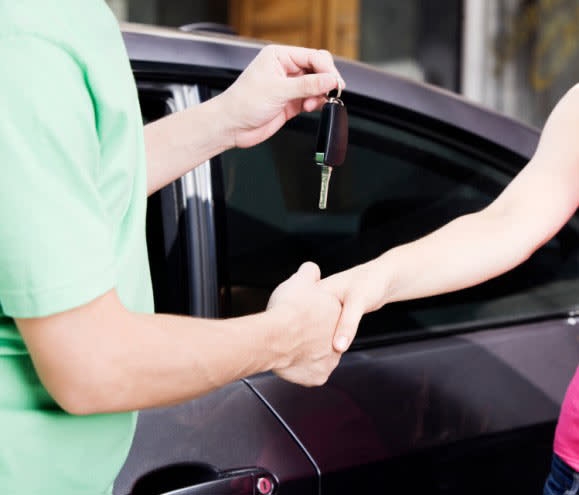Should You Lease or Buy a Car?

By: Stephanie Hamilton, Quizzle.com
In our economically uncertain times, people all across the country are cutting back on their spending, and trying to make smarter financial decisions. We are saving more and spending less. If you're in the market for a new car, you may be weighing the benefits and disadvantages of buying a car versus leasing one. The current prevailing opinion is that leasing is always bad and purchasing is always good. But that isn't necessarily true. Here are some things to consider:
Do you need a new car?
If you talk to people who regularly lease their cars, many of them will tell you that they do it because they like having a new car every couple of years. And while that would certainly be nice, the more important question is, "Is it necessary?"
Notice we didn't ask if you want a new car, but if you need one. Most people would like to have a new car, but it isn't always a good economic decision. A new car depreciates significantly the moment you drive it off the lot. This doesn't matter as much if you plan to lease every two years. But if you're planning to purchase your car once the lease is up, it's worth considering the fact that, on average, new cars lose about 20 percent of their value in the first year. That's $5,000 on a $25,000 car.
How much do you drive?
Most leases put a 12,000 or 15,000 mile per-year limit on mileage. If you drive a lot for work (or recreation), you could pay a significant fee at the end of the lease. Most companies charge 15 or 20 cents per mile for every mile over the limit, which can add up quickly.
Are you hard on your cars?
Do you have kids or pets? Do you haul equipment or other cargo that could damage the interior of the car? If so, consider buying instead of leasing. When you lease a car, you're expected to keep it in very good condition. You'll pay for anything beyond "normal wear and tear." If, however, you take good care of your cars, leasing could work for you.
Do you need some financial "breathing room?"
A lease can be a good short-term solution for someone who needs a car, but also needs low monthly payments. Because you're only paying for the use of the car and not for the car itself, lease payments are typically lower. In addition, you won't have to come up with a down payment and taxes for the car can be rolled in to your monthly payment. Of course, it's worth mentioning that you may be able to find a good used car and get a loan with low monthly payments, especially if you have a good credit score. Take time to explore all of your options.
Is your job stable?
This is an important and - in these tough economic times - sometimes difficult question to answer. If you are unsure about the future of your current job, signing a lease may not be the best choice right now. Though you can save some money upfront, you could find yourself in some financial trouble if you have to end your lease early because you've lost your job and can't make the payments. Most lease contracts include a provision that requires you to pay a fine equal to all the payments remaining in the lease, minus depreciation, if you terminate the contract early.
If there's any uncertainty about your job or near-future financial stability, buying a vehicle is the safer choice. Then, if your financial situation changes, you can simply sell the car.
Take the time to carefully weigh your options. Get out your calculator and crunch some numbers. Make sure you know exactly what your financial obligations would be in both scenarios - buying and leasing. Keep emotion out of the decision as much as possible. Focus, instead, on the numbers and the facts.
Improve your financial health in other ways by going to Quizzle.com, where you'll find great tools like a budget planner, free credit report, and home loan recommendations. And check out these other great money-saving articles:
